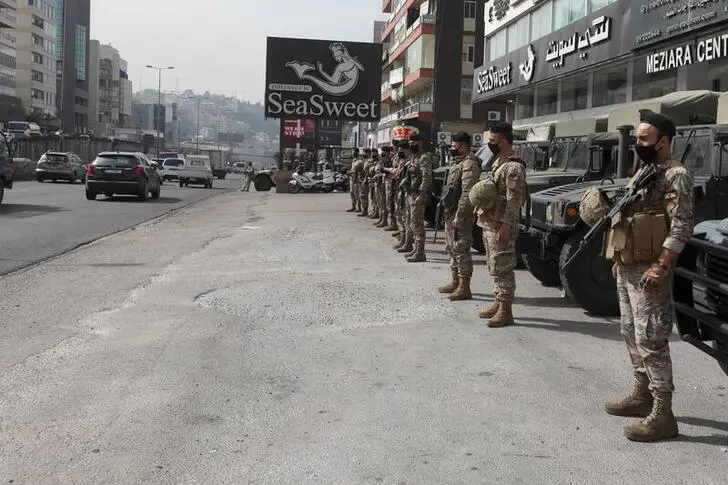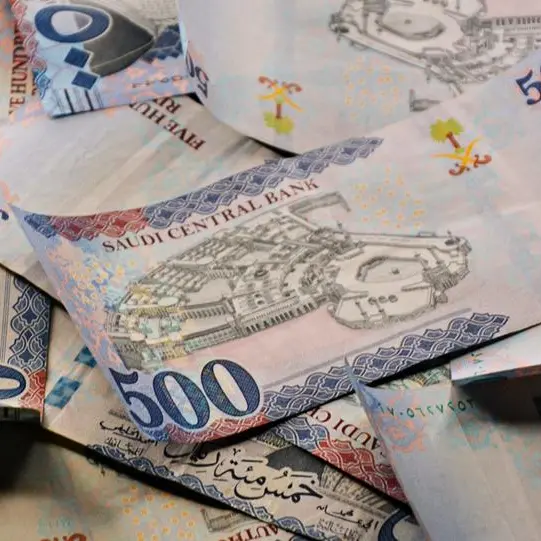PHOTO
BEIRUT: The United States and France have embarked on a joint diplomatic activity seeking Saudi support aimed at helping Lebanon out of its crippling economic and political crises, officials said Thursday, in the latest Western attempt to rescue the country from total economic collapse and a social explosion.
U.S. Ambassador to Lebanon Dorothy Shea and French Ambassador to Lebanon Anne Grillo flew to Riyadh Thursday for meetings with Saudi officials.
The US and French envoys visit to the kingdom is definitely aimed at rallying Saudi support to lift Lebanon out of its political and economic crisis, and consequently prevent a much-feared social explosion, Mustapha Alloush, deputy head of the Future Movement, told The Daily Star.
Saudi Ambassador to Lebanon Walid al-Bukhari told LBCI channel: The US and French ambassadors will consult with officials at the Saudi Foreign Ministry on some ideas to help support the situation in Lebanon. He reiterated the kingdoms long-standing position on maintaining Lebanons security, stability and prosperity.
The joint diplomatic activity reflected increasing US-French coordination over the deepening political crisis in Lebanon, which for nearly 11 months has been left without a fully empowered government to tackle a series of crises, including an unprecedented financial downturn that is hitting the Lebanese hard and threatening them with poverty and hunger.
Lebanon is in the throes of a severe economic and financial crisis, posing the gravest threat to its stability since the 1975-90 Civil War. The Lebanese pound has been in a free fall since October 2019, losing over 90 percent of its value, pushing more than half of Lebanons 6 million population into poverty and unemployment. The pound hit a new record low Thursday, trading at LL18,150 to the US dollar on the black market for the first time in Lebanons history, sending prices of food and everything else skyrocketing.
The US and French envoys visit to Saudi Arabia is a follow-up of the trilateral meeting on Lebanon held by US Secretary of State Anthony Blinkens with French Foreign Minister Jean-Yves Le Drian and Saudi Arabian Foreign Minister Faisal bin Farhan Al-Saud on June 29 in Matera, Italy on the sidelines of the G-20 conference.
Saudi Arabia, which wields great in influence in Lebanon and has allies on both sides of the sectarian fence, has remained largely out of the current Lebanese political crisis, in contrast with past approaches.
Beiruts ties with Saudi Arabia and other Arab Gulf states have been strained due to what these states perceive as Hezbollahs growing influence in Lebanon. The strain has prompted Gulf states to dither from supporting Lebanon financially. Gulf states have long channeled funds into Lebanon's ailing economy but they are alarmed by the rising influence of Hezbollah, a powerful group backed by their arch-rival Iran.
Two main topics are on the agenda of the US and French ambassadors talks with Saudi officials.
The first item was disclosed by Grillo, who said in a statement released by the French Embassy in Beirut Wednesday that she would explain to Saudi officials how urgent it is for Lebanese officials to form an effective and credible government to work to achieve the essential reforms in Lebanons interest in accordance with the aspirations of the Lebanese people.
The French ambassador would with her American counterpart, express the desire of France and the US to work with their regional and international counterparts to exert pressure on those responsible for obstruction, the statement said.
The second item on the agenda relating to assistance to Lebanon was expounded by Shea who, according to a statement released by the US Embassy in Beirut, said she would discuss with Saudi officials the gravity of the situation in Lebanon and emphasize the importance of humanitarian assistance to the Lebanese people, as well as increased support for the Lebanese Armed Forces and the Internal Security Forces.
Ahead of the joint US-French diplomatic activity, the US State Department urged Lebanese leaders to show flexibility to form a government to implement reforms and save the crumbling economy.
In addition to the absence of a fully functioning government, the Lebanese are wrestling with the breakdown of public services, including severe fuel, gasoline, diesel and medicine shortages and price hikes on basic goods in what the World Bank has called one of the world's worst economic crises since the 1850s.
Speaking at a ceremony in Bkirki sponsored by Maronite Patriarch Bechara al-Rai marking the centenary of the relationship between the Maronite patriarchate and Saudi Arabia, Bukhari called on rival Lebanese parties to give priority to serving Lebanons interests and implicitly criticized Hezbollah for attempting to include the country in a regional axis led by Iran.
From this place we hope that political parties will prioritize the supreme Lebanese interest to confront challenges in which Lebanon is living, including an attempt by some to tamper with the close relationship between Lebanon and its Arab depth and include it in other axes that run counter to the preamble of the Lebanese Constitution, which clearly states that Lebanon is a final homeland for all its citizens with an Arab identity and affiliation where there is no legitimacy to any authority that contradicts coexistence, the Saudi ambassador said.
There is no legitimacy to a speech of strife, partition and disintegration. No legitimacy to a speech that jumps over Lebanons Arab identity, he added.
Bukhari, whose country sponsored the 1989 Taif Accord that ended the 1975-90 Civil War and stipulated equal power sharing between Muslims and Christians, said: We call for maintaining diversity and coexistence, whose foundations were laid down by the Taif Accord which safeguarded national unity and civil peace.
Addressing the ceremony, Rai praised the Saudi role in Lebanon. We will not forget the kingdoms mediation efforts during the war on Lebanon, especially since Saudi Arabia was the first Arab country to recognize Lebanons independence and respected the choice of the Lebanese and their traditions, Rai said.
Meanwhile, the Cabinet formation crisis, now its 11th month, dragged on with no solution in sight amid growing indications that Prime Minister-designate Saad Hariri was heading toward stepping down within days in a dramatic move reflecting his frustration with the continued obstruction by President Michel Aoun and MP Gebran Bassil of his efforts to form a proposed Cabinet of nonpartisan specialists to deliver reforms and avert total economic collapse.
Bassil, head of the Free Patriotic Movement, whose tough conditions have been largely blamed by Future Movement officials for the Cabinet deadlock, said in remarks published Thursday that he was ready to help Hariri to form a new government.
Hariris refusal to form a government is a loss for us and not a gain as some may see it. We will be the biggest losers and we will be very said if [Hariri] steps down, Bassil said in remarks published by An-Nahar newspaper.
We have done everything in order for the [Cabinet] formation process to succeed. We are ready to make any step that will help Hariri continue in his mission and not to waste more time which we must exploit to check the collapse, he said.
Asked about the possibility of an understanding between him and Hariri, Bassil said: In the past, we reached understanding with Hariri on many issues and we can agree today. There is nothing from our part that prevents an understanding with him. I am ready to discuss all matters and we will find common ground to serve everyone's interests.
Copyright 2021, The Daily Star. All rights reserved. Provided by SyndiGate Media Inc. (Syndigate.info).





















